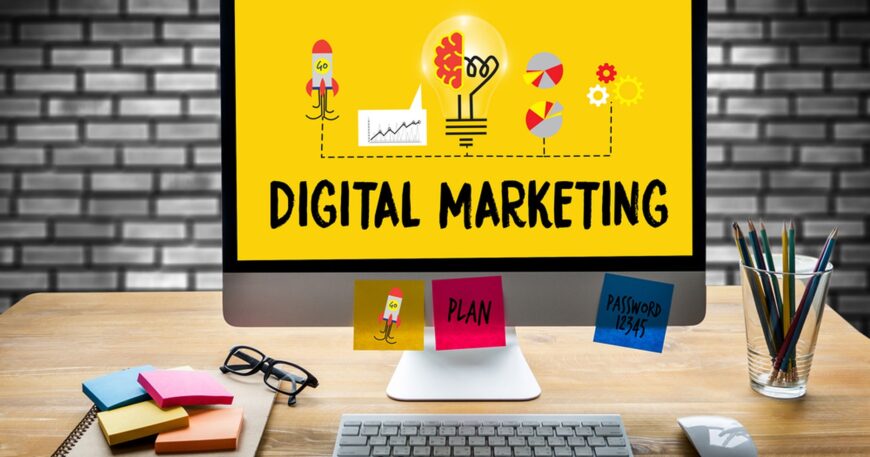All About Digital Marketing
Introduction: In today’s fast-paced and highly interconnected world, digital marketing has emerged as a powerful tool for businesses to reach their target audience effectively. As technology continues to advance, it’s crucial to adapt and understand the ever-evolving landscape of digital marketing. This blog aims to provide you with a comprehensive guide on what digital marketing entails and how you can embark on a journey to learn and excel in this field.

What is Digital Marketing? Digital marketing encompasses all online marketing efforts aimed at promoting products, services, or brands using digital channels. These channels include websites, search engines, social media platforms, email, mobile applications, and various other digital platforms.
Unlike traditional marketing methods, digital marketing enables businesses to connect with their target audience in a more personalized and measurable way.
Key Components of Digital Marketing:
- Search Engine Optimization (SEO): SEO focuses on improving a website’s visibility in search engine results pages (SERPs). By optimizing website content, structure, and technical aspects, SEO helps increase organic (non-paid) traffic and improve search engine rankings.
- Search Engine Marketing (SEM): SEM involves paid advertising on search engines, commonly known as Pay-Per-Click (PPC) advertising. It allows businesses to display their ads prominently on search engine results pages based on specific keywords, targeting a relevant audience.
- Social Media Marketing (SMM): SMM leverages social media platforms such as Facebook, Instagram, Twitter, LinkedIn, and YouTube to promote brands, engage with customers, and drive website traffic. It involves creating and sharing compelling content, running paid ads, and fostering community engagement.
- Content Marketing: Content marketing focuses on creating and distributing valuable, relevant, and consistent content to attract and retain a clearly defined target audience. It includes blog posts, articles, videos, infographics, e-books, and more. The goal is to establish brand authority, generate leads, and drive customer engagement.
- Email Marketing: Email marketing involves sending targeted emails to prospects and customers to nurture relationships, promote products or services, and drive conversions. Effective email marketing strategies include personalized content, segmentation, automation, and analytics for measuring campaign success.
- Influencer Marketing: Influencer marketing utilizes influential individuals in specific industries or social media platforms to promote products or services. Collaborating with influencers can help increase brand awareness, credibility, and reach, particularly among the influencer’s loyal followers.
Learning Digital Marketing: Now that we have covered the key components, let’s explore how you can learn digital marketing:
- Online Courses: Numerous reputable platforms offer digital marketing courses. Look for comprehensive courses that cover various aspects such as SEO, SEM, social media marketing, content marketing, and analytics. Some popular platforms include Udemy, Coursera, HubSpot Academy, and Google Digital Garage.
- Blogs and Resources: Explore authoritative blogs and resources dedicated to digital marketing. Follow industry experts, read case studies, and stay updated with the latest trends and best practices. Some noteworthy blogs include Moz, Neil Patel’s blog, Content Marketing Institute, and Social Media Examiner.
- Practical Experience: Hands-on experience is invaluable in digital marketing. Start by creating your own website or blog, optimizing it for search engines, and experimenting with social media platforms. Implement strategies, analyze results, and adapt accordingly. You can also consider volunteering or interning with organizations to gain practical exposure.
- Networking and Communities: Engage with the digital marketing community by joining online forums, attending webinars, and participating in industry-related events. Networking with professionals and like-minded individuals can provide insights, mentorship opportunities, and collaborations.
- Certifications: Obtain certifications from renowned organizations such as Google Ads, Google Analytics, Facebook Blueprint, and HubSpot to demonstrate your expertise in specific
For Learn Free Digital Marketing Subscribe to our channel – Digital Marketing Guruji



